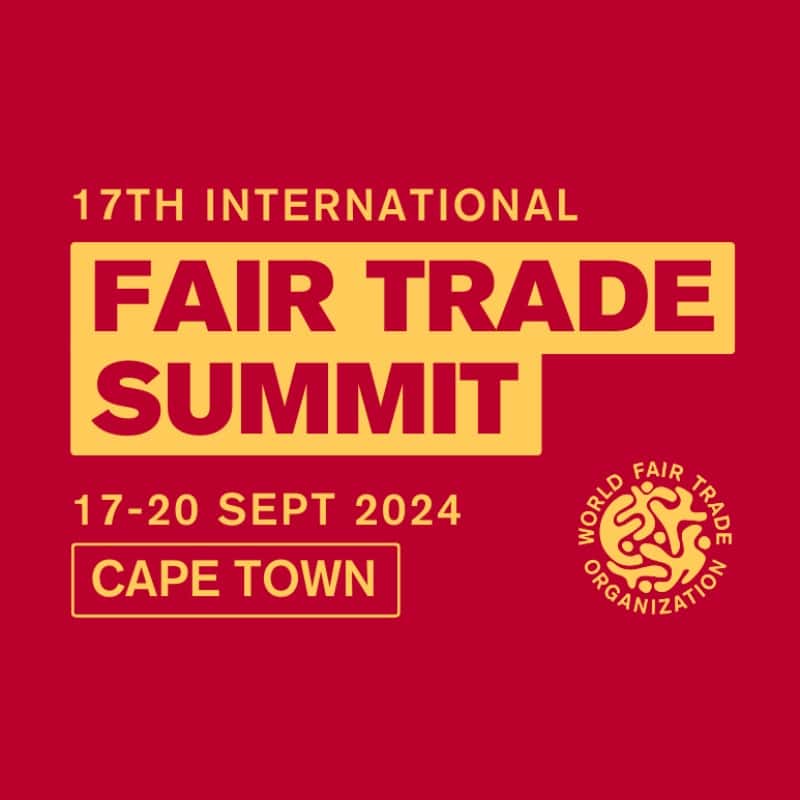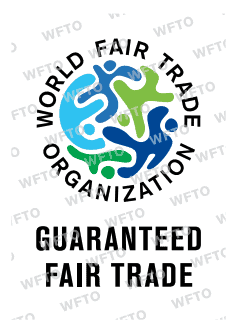PRESS RELEASE: BUILD BACK FAIRER- CIVIL SOCIETY ALLIANCE CALLS FOR THE TRANSFORMATION OF THE ECONOMY AND TRADE SYSTEM FOR A JUST AND SUSTAINABLE RECOVERY
Friday 25 September marks a number of significant milestones: the two-year anniversary of the adoption of the International Fair Trade Charter; the fifth anniversary of adoption of the Sustainable Development Goals; and the Fridays for Future Global Day of Climate Action.
As we mark this years’ milestones it is clear that the outlook is bleak. Covid-19, itself a result of humanity’s destruction of nature, has exacerbated existing inequalities. The hardest hit have been the most vulnerable, including small-farmers and workers in the Global South.
But it does not need to be this way.
A wide coalition of civil society organisations, in consultation with international partners and producer organisations across Europe, the Americas, Asia and Africa, have come together to demand the transformation of the economy and trade system through just and sustainable Covid-19 recovery policies. The signatories of the statement include: World Fair Trade Organization (WFTO), Fairtrade, RIPESS, CIDSE, Act Alliance EU, The International Federation of Organic Agriculture Movements (IFOAM- Organics International), Social Economy Europe, Wellbeing Economy Alliance (WEALL), and the International Cooperatives Alliance (ICA), with the support of the Fair Trade Advocacy Office (FTAO).*
Comments from the signatories on the release of the statement:
Roopa Mehta, President of the World Fair Trade Organization:
“Embedded in Fair Trade values and practices is the potential to transform our socio-economic structures and systems. Fair Trade addresses current global issues of inequities, discrimination, poverty and climate change.The WFTO membership of Fair Trade enterprises has demonstrated its impact in creating sustainable livelihoods and bringing social change. These enterprises place people and planet before profit. Now it is time, as economies recover and commit to ‘rebuild better’, for the Fair Trade community to come together and speak in a loud, common voice. For us to call upon our governments, policy makers, and other influential players to recognize the Fair Trade business model as transformative and the most relevant for our times.”
Darío Soto Abril, CEO of Fairtrade International:
“The COVID pandemic has starkly highlighted the inequalities in the global economy – a few companies have made huge profits, the average person is suffering, and the most vulnerable are losing their livelihoods and even their lives. Now is the time for governments and businesses to build inclusive economies that prioritize human rights, while protecting the environment. We must put our collective will towards normalizing social justice by transforming markets to be fairer and more sustainable, including for those who produce the world’s food.”
Jason Nardi, RIPESS Europe General Delegate:
“Political leadership in most countries emphasizes that the COVID-19 pandemic is a temporary situation; that once a vaccine has been rolled out, life will return to normal, and that current globalisation will bring prosperity to all. We all know that this is false. It was wrong, and continues to be so, that speculators make money betting against our food. Agriculture must be completely removed from WTO to avoid such speculation. Food is not a commodity; it is a human right!”
Josianne Gauthier, CIDSE Secretary General:
“In our recovery we should model economic priorities around well-being and a healthy environment, following principles of solidarity and social justice rather than around growth. There cannot be a healthy economy on a sick planet.”
Floris Faber, Director of Act Alliance EU:
“The COVID-19 pandemic has laid bare the vulnerability in our world and economic system. We need to rebuild with the aim of equality and justice for all and ensure that no one is left behind.”
Juan Antonio Pedreño, President of Social Economy Europe:
“We are living in the midst of a health, economic and social crisis, in this situation, we need to unite, build alliances and take care of our own. Together, through instruments as social economy entrepreneurial and associative models we can protect each other, strengthen our solidarity links and rebuild our societies and economies in a better way. Making sure that our economies work for people and the planet. We need hopes but hope will always be inside us, let’s make sure that the Sustainable Development Goals aren’t an empty promise, let’s build a better tomorrow.”
Michael Weatherhead of the Wellbeing Economy Alliance:
“This call for a reset of how government works with and supports business is timely and needed. This moment provides an opportunity for government to support business to be a key partner in reducing inequality, tackling the climate emergency and bringing dignity to millions.”
C.K. Ganguly (Bablu), Executive Director of The Timbaktu Collective, Member of the Board of IFOAM – Organics International:
” We live today in a consumption driven and unequal world – a world where the real producers, especially the small producers and workers, have been relegated to the margins. Over the years the Organic and Fair Trade fraternities have joined hands on various occasions, to ensure that the voices and concerns of these marginalised peoples are heard, especially in public and policy dialogues. It is also our collective responsibility, as citizens of this planet earth, to enable sustained livelihoods for these peoples in the margins and ensure a better future for all.”
Bruno Roelants, Director-General of the International Cooperative Alliance:
“Celebrating two years of the International Fair Trade Charter, we would like to reiterate our commitment to building fairer and more sustainable economies for all, together with the Fair Trade movement. It is time to Re-act collectively to the challenges of our times and Re-shape business ecosystems to operate towards the well-being of people and the planet.”
*Notes to the editor on the signatory organisations
The World Fair Trade Organization (WFTO) is the global community and verifier of social enterprises that fully practice Fair Trade.
Fairtrade changes the way trade works through better prices, decent working conditions and a fairer deal for farmers and workers in developing countries.
RIPESS (Intercontinental Network for the Promotion of Social Solidarity Economy) is a global network of continental networks committed to the promotion of Social Solidarity Economy.
CIDSE (International Cooperation for Development and Solidarity) is an international family of Catholic social justice organisations working for transformational change to end poverty and inequalities, challenging systemic injustice, inequity, destruction of nature and promoting just and environmentally sustainable alternatives.
Act Alliance EU is a network of 13 European church-based humanitarian and development agencies whose purpose is to influence EU policy and practice regarding development and humanitarian aid policies and related issues, in order to provide sustainable benefits to and improvements in the lives of people affected by poverty and injustice around the world.
The International Federation of Organic Agriculture Movements (IFOAM- Organics International) is a membership-based organisation working to bring true sustainability to agriculture across the globe.
Wellbeing Economy Alliance (WEAll) is a collaboration of organisations, alliances, movements and individuals working towards a wellbeing economy, delivering human and ecological wellbeing.
Social Economy Europe is the voice of 2.8 million social economy enterprises and organisations in Europe. They are the social economy reference point at European level.
The International Cooperatives Alliance (ICA) unites, represents and serves cooperatives worldwide.
The Fair Trade Advocacy Office (FTAO) speaks out on behalf of the Fair Trade Movement for Fair Trade and Trade Justice with the aim to improve the livelihoods of marginalised producers and workers in the South. It is a joint initiative of Fairtrade International and the World Fair Trade Organization.
Press contact:
Sergi Corbalan (corbalan@fairtrade-advocacy.org)
Executive Director
Fair Trade Advocacy Office
Village Partenaire, Bureau 1
Rue Fernand Bernier 15
1060 Brussels, Belgium
Share This Post
Tags
Contact
- Parallelweg West 9A, 4104 AX Culemborg, The Netherlands
- +31649086439
- info@wfto.com
If you want to contact any of our staff members (not Board) please write to the First Name (ex: Paul)@wfto.com
© 2024 World Fair Trade Organization. All Rights Reserved.

